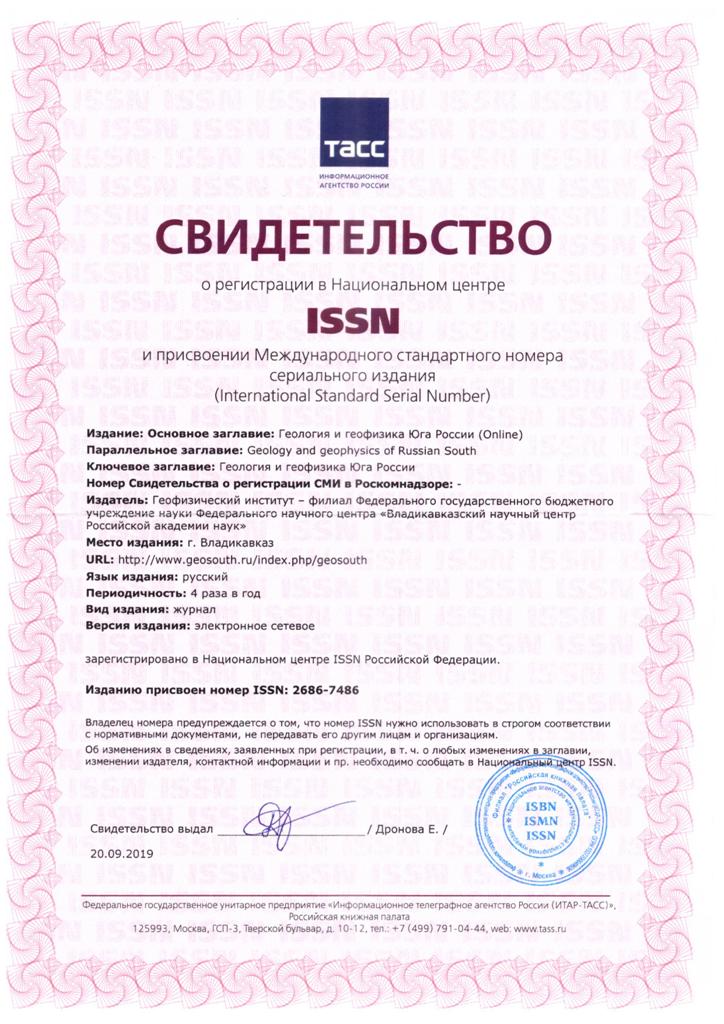VARIATIONS OF APPARENT RESISTIVITY OF ROCKS IN THE WELL IN THE EAST CAUCASUS DURING STRONG EARTHQUAKES
Keywords:
apparent resistivity, magnitude, aftershocks, the electric field, earthquake, water filtration
Abstract
This article provides an analysis of the results of electrical sensing of sediment in the well received at the station «Izberbash», located in the south of Russia in the East Caucasus. To observe the apparent resistivity, a special installation that performs high-precision continuous measurements with an error not exceeding 0.05%. Analysis of the data for the observation period 2010‑2011 shows the influence seismic process of strong earthquakes in the hydrodynamic regime of the fault zone. Apparent resistivity anomalies before earthquakes are caused by relatively close creep ascetics in training focus on the final stage, which causes compression and stretching water-saturated rocks, where the electrode measuring system.
Published
2013-11-04
Section
Articles


